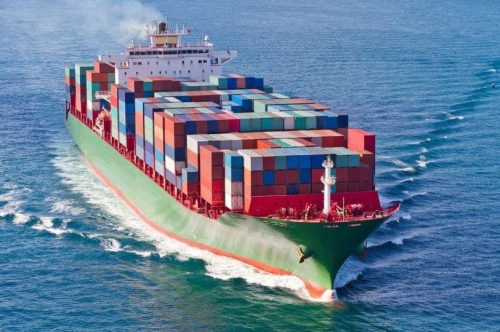Eni, in collaboration with Assarmatori and Confitarma, today presented the document “The route towards net zero. Together to decarbonise the maritime sector” to which three of the largest naval engine manufacturers (Wärtsilä, WinGD and MAN Energy Solutions) contributed, as well as Unem, Federchimica/Assogasliquidi, Assocostieri and RINA, which supervised the work of 40 experts who have worked together since last March to arrive at a common strategy.
The project has defined a strategic orientation document, starting from the analysis of the technological evolution of the engines and the availability, also in terms of infrastructure, of energy vectors with reduced carbon intensity.
In the world, more than 100.000 merchant ships transport 12 billion tons of goods a year. The maritime sector is today the backbone of the global economy: 90% of goods are transported by water and it is estimated that the greenhouse effect emissions generated account for about 3% (of the global total of climate-altering emissions). At European level, maritime transport moves around 75% of extra-European trade and 36% of intra-EU trade.
The sector needs short, medium and long-term solutions, compatible with economic dynamics, to contain up to zero CO2 emissions and allow shipowners to adequately respond to the targets set by the European Commission, as well as the obligations defined at international level by the IMO (International Marine Organization) and other additional obligations. There are many energy vectors available (HVO, FAME, LPG, LNG and its bio and renewable solutions, methanol, ammonia, synthetic fuels and hydrogen) but they present different applications and perspectives, conditioned by the availability of raw materials and existing or existing infrastructures. way of realisation. In the short-medium term, biofuels represent an already available solution: today's meeting revealed the will to implement pilot cases, which would make it possible to meet European targets and ensure competitiveness, taking into account a global shipping age average of just under 22 years of age which, depending on the type of activity, has very different replacement times.
Engine manufacturers are ready to create ad hoc solutions for different types of fuel. At the moment, shipowners are moving towards new orders for mono fuel engines (on an experimental basis also with the capture on board of CO2 for LNG or with technologies that can capture carbon in solid form) and dual fuel engines that use liquid carriers or gaseous also bio, methanol and in the long term ammonia and hydrogen.
“Working together on this project, jointly with Eni and various other qualified players, is further proof of the fact that shipowners are on the front line for the decarbonisation of maritime transport, ready to do everything in their power in this regard. However, it should be reiterated that when it comes to alternative fuels, the contribution of the onshore industry is fundamental for the identification of the fuel, for its production and finally for its storage in ports, distribution and placing on board the ship. On this we expect a lot also to comply with the stringent national, community and international regulations on environmental sustainability”, declared Mario Mattioli, President of Confitarma, and Stefano Messina, President of Assarmatori.
“The maritime sector is fundamental for Italy's competitiveness and also for experimenting with technological neutrality through the adoption of numerous solutions to favor a fair transition, according to the three dimensions: environmental, economic and social. Like Eni, we strongly believe in this project, an inclusive example of collaboration between all players in the sector, which for us represents only a first step both to promote already mature solutions such as biofuels and to experiment with more long-term solutions” said Giuseppe Ricci, Director General Energy Evolution of Eni.
